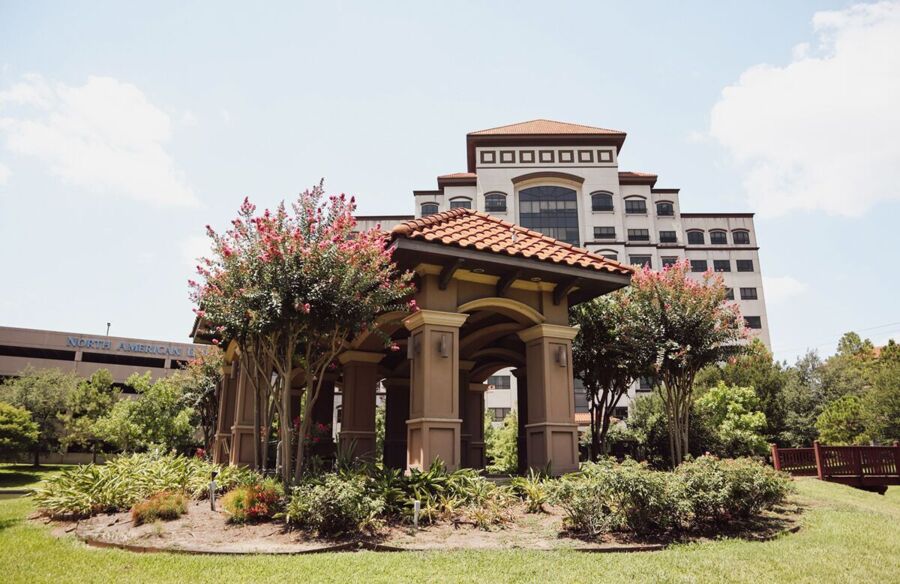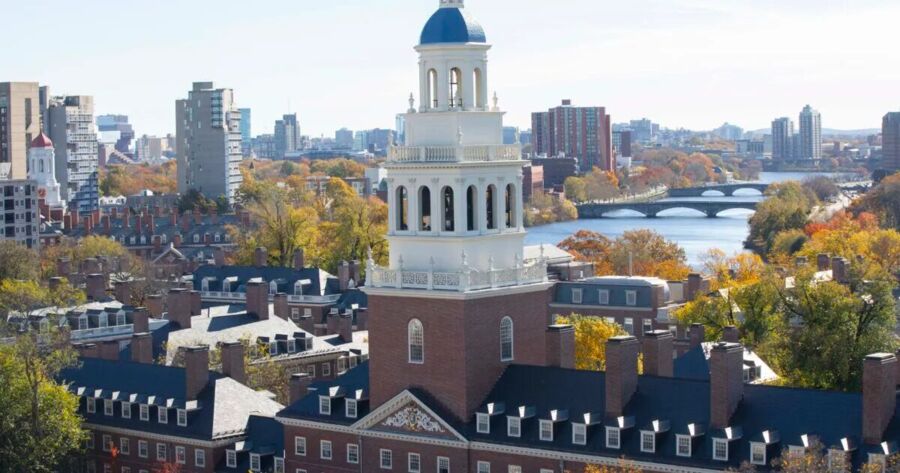Kazakhstani Students Fear Deportation as Trump Administration Toys With Their Visas

While the US government and courts battle around immigration rules, the fate of many foreign students is at stake
This spring, the US government revoked thousands of student visas, a measure that, in some cases, required students to leave the country immediately. Initially the Trump administration stated that the reason for revoking these visas was the students’ participation in pro-Palestinian protests, but it soon became clear that visas were also terminated for minor violations unrelated to activism .
Читайте этот материал на русском.
Lawsuits helped restore some student visas, but the US government openly stated that it has no plans to stop. At the same time, legal battles continue at Harvard University, which Donald Trump’s government is trying to ban from admitting foreign students.
Vlast spoke with Kazakhstanis studying in the US about how they have been affected by the new immigration policy.
An Illegitimate Deportation List
Jean Kashikov was a teenager when he first came to Alaska as a tourist with his family. “I liked the people, the place, the mountains, and nature. So I decided to study here.”
He earned a bachelor’s degree in mathematics as well as an associate’s degree in professional piloting from the University of Alaska Anchorage. Through the Optional Practical Training visa extension, his F1 student visa allowed him to work in the US for a year after graduation. Kashikov worked as a self-employed piloting instructor.
He planned to buy his own plane and apply for a business visa, but in April everything suddenly changed.
Once students enter the US, he explains, there is a form of non-immigrant student identification card handled by universities through the electronic SEVIS program.
On April 10 Kashikov received an email from his university which said that the government had terminated his SEVIS status from the university database. The university recommended that he either leave the country or contact an immigration lawyer.
“At our university, the international student office is really involved and helps students, but there are some universities where they don’t care. And if a student doesn’t know and goes home for the summer, they can get stuck there. That’s why, I think, the government didn’t contact me directly,” Kashikov suggests.

That same day, he contacted two local newspapers and gave an interview.
“Alaska is a very ‘red state’, many support Trump, they’re convinced that only dangerous criminals are being deported,” Kashikov said. “My friends and acquaintances know that I am not a criminal. I was already planning to leave, but instead I face deportation.”
After a few days Kashikov consulted an immigration lawyer. The American Civil Liberties Union (ACLU) and a private attorney took his case pro bono.
“They said that the only solution was to go head to head with the administration, to say that it is abusing its power and has no right to operate like this,” Kashikov said.
In the suit, his lawyers argued that the government violated the Fifth Amendment to the Constitution and the Administrative Procedure Act (APA) because his immigration status was unfairly terminated and he was not given due process in court to dispute the decision.
Kashikov said that there is no immigration service in Alaska because the state has a small population and there are practically no immigrants. The nearest immigration office is located in Seattle, a three-hour flight away. Because of this, the Seattle office hired an attorney to deal with his case, even though he had never worked on similar issues before.
Judges said that the status of international students was terminated because their names appeared in the central criminal database (National Crime Information Center). Kashikov had two minor violations. In one case, all charges were dismissed, and in the other he was speeding 18 miles over the speed limit in the state of Georgia (a widely accepted custom). He was fined for speeding, but the fine was withdrawn after he was issued the deportation notice.
“The prosecutor [in Georgia] also thought: why should a person’s life be ruined because of a $300 fine? So they revoked the fine,” Kashikov says.
In court he was never able to find out for sure why his legal status was revoked. There is no definite rule that stipulates that a student should be deported simply because their name appears in the central criminal database, especially if they did not violate any immigration law.

Thousands of students in various states have faced a similar situation. After lawsuits began across the country, many of their statuses were restored, but lawyers say these proceedings created a gap in their legal residency. And because they have been in the US for some time without legal status, they could face new problems, including being banned from re-entering the country for several years.
“Many people, some of whom I even personally knew, have already left out of fear,” Kashikov said.
The state eventually reached a settlement agreement with Kashikov which says that his status will not be terminated, even in case the rules are rewritten so that the government can deport a student based on their criminal record.
Kashikov still plans to work until the end of the year without leaving the country because he “can’t count on another visa under the current administration.”
“The university administrators recommended not leaving the US for now."
Anxiety and Uncertainty
An MBA student at North American University, with whom Vlast spoke under conditions of anonymity, said that no one he knows has encountered similar problems, but the anxiety and uncertainty continues to grow.
“We don’t know what to expect tomorrow. It seems that every day something changes. We’re trying not to read the news so that we won’t go crazy,” he said.
According to the young man, foreign students are trying their hardest not to draw attention to themselves.
“The university administrators recommended not leaving the US for now, because there is no guarantee that immigration authorities will allow us to re-enter the country. They also advised us to always carry our passports and immigration documents on us in case an ICE [Immigration and Customs Enforcement] officer stops us,” he said.
Kazakhstan’s ministry of foreign affairs informed Vlast that it was not notified of any Kazakhstani students having their visa revoked so far. Minister Murat Nurtleu told Vlast that if called upon, the ministry will deal with the situation. “It’s my job to communicate with our partners, with our friends,” he said in response to a question of whether there will be negotiations with the US administration.
The ministry of science could not tell Vlast the exact number of all Kazakhstani students enrolled at US universities.
The state-owned Center for International Programs, which oversees the Bolashak scholarship program said that there are currently 587 scholarship recipients in the US enrolled in academic programs and internships..
Another 145 Kazakhstanis are in the US participating in the center’s Research Internships programs.
The Center for International Programs told Vlast that it did not receive any notification on the termination of visas for any of the students they oversee.
Harvard Embargo
At the end of May, the Trump administration also barred Harvard University from admitting foreign students.
A Massachusetts district court temporarily blocked this decision while litigation continues. Trump then signed an executive order banning foreigners from entering the US to attend Harvard and directed the State Department to “consider revoking” valid academic or exchange visas for all foreign students. The court then temporarily blocked that executive order as well.
Sayasat Nurbek, Kazakhstan’s minister of science, told Vlast that the situation is “not simple” but, according to him, the ministry is keeping the situation under control.
“Right now it’s too early to panic, we need to wait for the courts to decide. In the US the courts may determine whether the executive order will be upheld or if it will be considered unlawful,” he said.
At Harvard there are seven Bolashak recipients: five Master’s students and two research interns.
“We are in contact with all of the program participants. As soon as an official decision is made, we will respond accordingly,” said the minister. According to him, should the restriction come into force, there is already a well-tried plan of action.
“We created a commission when I headed Bolashak. If a situation concerning our citizens arises, we can organize transfers to other universities where there were no such restrictions,” he explained.
According to the minister, students will be able to continue their studies at another Ivy League university in the same specialization for which they were awarded a scholarship. All these universities are partners of the Bolashak program.

“Harvard Isn’t Harvard Without You”
Bezkat (name changed) worked hard to get into Harvard. “Every step was difficult. It took me about a year and a half,” he said.
The young man was completing a one-year Master’s program at Harvard when he received the news from Kazakhstan that the university was prohibited from admitting foreign students.
The university later advised students not to rush to buy a ticket home and promised to protect international students as much as possible.
“The American students also told us: ‘We support you, Harvard is not Harvard without you. If you have any problems, tell us, we’ll help you’,” he said.
Bezkat could receive his diploma while the decision to ban the admission of foreign students is temporarily blocked. He planned to work for a year after finishing his Master’s (as per his student visa rules), but because of the Trump administration’s decisions, he eventually decided to return to Kazakhstan.
After the court extended a temporary restraining order blocking the ban on admission of foreign students, President Trump signed a new executive order on June 4 that bars foreign nationals seeking to study or participate in exchange programs at Harvard University from entering the country for six months, citing “national security concerns.” The order also directs the US State Department to consider revoking F-1 and J-1 visas already issued to current students.
Harvard went back to court with an updated lawsuit, and on June 5, the court blocked the new executive order as well. The Trump administration will now have to decide whether it will appeal the court’s decision.
Dana Masalimova, who graduated from the Harvard Kennedy School of Government after an 18-year career in Kazakhstan’s Foreign Service,
predicts that the administration will appeal to the First Circuit Court of Appeals.
“Most likely, the executive branch will lose there. Then it can appeal to the Supreme Court. It is very difficult to predict how the situation there will turn out, given that today the Supreme Court has a strong conservative majority: six of the nine current judges were appointed by Republican presidents,” Masalimova said.
In addition, Trump’s new executive order relies on Section 212(f) of the US Immigration and Nationality Act, which gives the president the power to bar entry of foreigners if it goes against the interests of the United States, Masalimova noted.
"And in 2018, the Supreme Court already upheld a very broad interpretation of this authority in Trump v. State of Hawaii when it allowed the administration to ban entry from several predominantly Muslim countries. That precedent gives the president broad authority to restrict entry into the country, especially when national security is at stake," she also notes.
In late May, Politico reported that the Trump administration also intends to introduce social media vetting for anyone applying for student visas in the United States. US embassies and consular departments have been ordered to suspend scheduling new interviews for student visas.
An edited version of this article was translated into English by Zeina Nassif.
Власть — это независимое медиа в Казахстане.
Поддержите журналистику, которой доверяют.
Мы верим, что справедливое общество невозможно построить без независимой журналистики и достоверной информации. Наша редакция работает над тем чтобы правда была доступна для наших читателей на фоне большой волны фейков, манипуляций и пропаганды. Поддержите Власть.
Поддержать Власть








